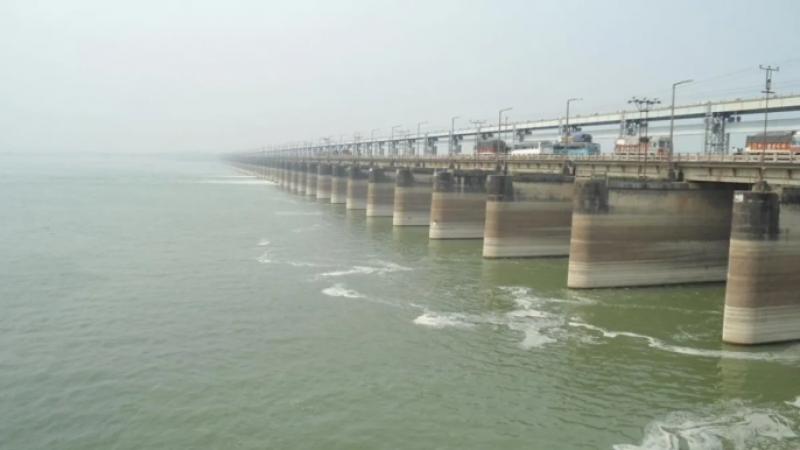- Inflation Dips to 8.29% in August, Lowest in 3 Years |
- Eminent writer Badruddin Umar passes away |
- Dhaka’s air recorded ’moderate’ Sunday morning |
- Clashes in Hathazari over FB post; Section 144 imposed |
- Total Lunar Eclipse to Be Visible Sunday Night |
Bangladesh, India to Discuss Ganges Water Treaty in Delhi

The Ganga Water Treaty was designed to manage the division of waters at the Farakka Barrage, particularly during the critical January-May dry season.
Members of the Bangladesh–India Joint Rivers Commission will meet in Delhi on Tuesday, 9 September, to review the Ganges River Water-Sharing Treaty, which is set to expire in December 2026.
A 10-member delegation from Bangladesh, led by commission member Abul Hossen, will depart Dhaka on Monday to attend the 88th meeting of the commission.
The 30-year treaty, signed in 1996, governs the sharing of Ganges waters at the Farakka Barrage. Abul Hossen said the meeting will primarily focus on reviewing the treaty’s implementation.
“Representatives from both countries monitor water at the Farakka Barrage from January to May, measuring four times daily and calculating allocations based on a 10-day average,” he explained. “The discussions mainly focus on these issues, though informal talks on other matters also take place.”
Bangladesh has faced water shortages in the dry season, affecting the Gorai River and the Sundarbans. In renewing the treaty, Dhaka plans to request an average of 40,000 cusecs of water and seek a longer-term agreement.
“Formal discussions on this have not yet begun. We have prepared Bangladesh’s demands and considered India’s likely position,” Hossen added.
Bangladesh is also expected to propose water-sharing arrangements for 14 other rivers, including the Dharla, Dudhkumar, Gomati, Khowai, Monu, and Muhuri. The country will urge both sides to follow international procedures in using these waters.
The delegation may also seek the development of a joint flood forecasting model to exchange real-time information and build a Joint Flood Forecasting System. Approval will also be requested for dredging and repairs of river dams damaged in recent years, which require mutual consent.
The Ganges Water-Sharing Treaty was signed in New Delhi on 12 December 1996 by then Prime Ministers HD Deve Gowda of India and Sheikh Hasina of Bangladesh. During Hasina’s visit to India in early 2024, Prime Minister Narendra Modi confirmed both sides agreed to review the treaty’s renewal at the expert level.
Reports indicate New Delhi may propose a shorter treaty of 10–15 years to allow more flexibility in future water-sharing arrangements.

